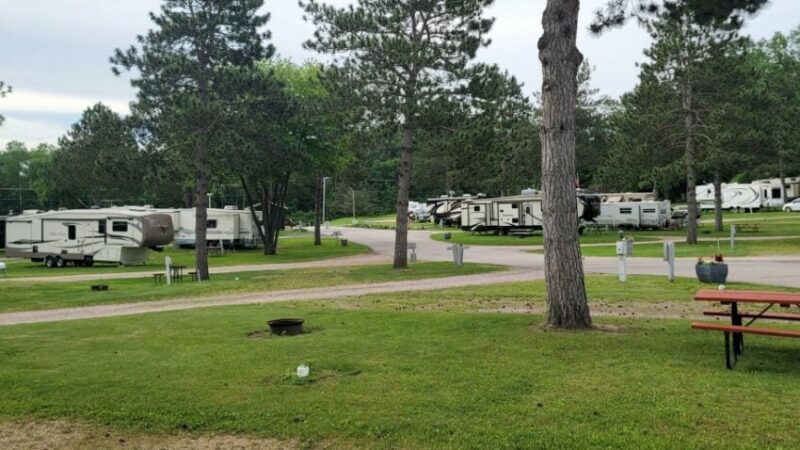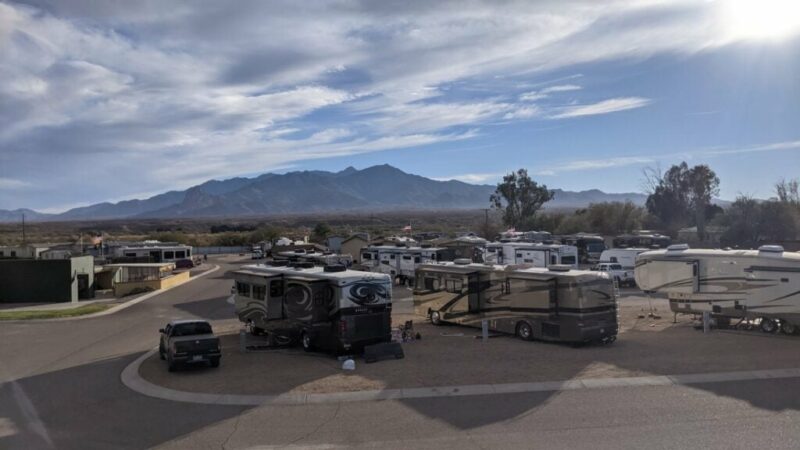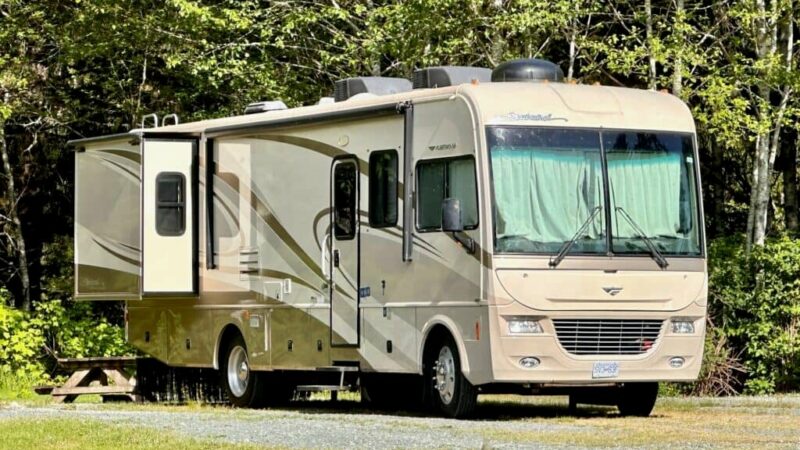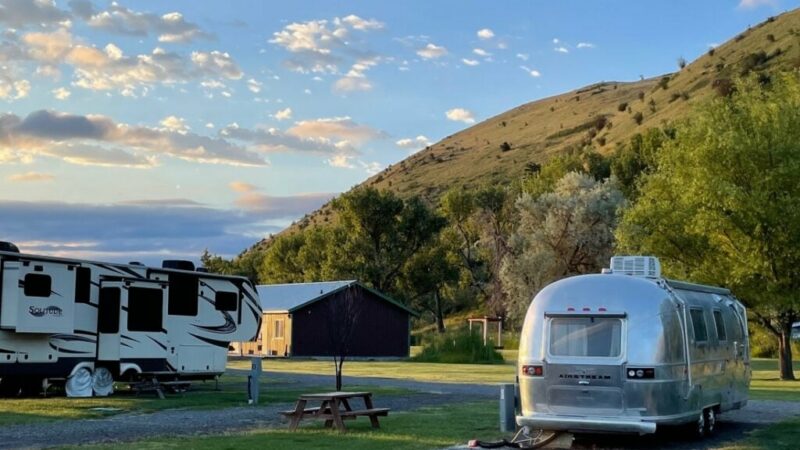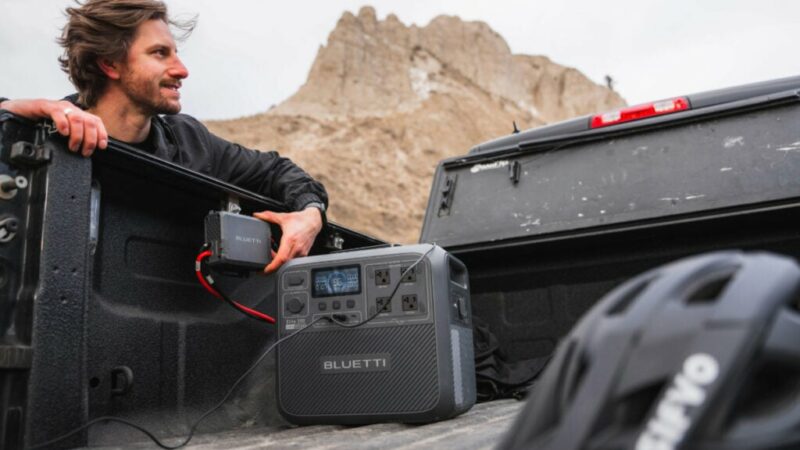Best RV Internet Deals: How To Get Online For Less

What Are The Best RV Internet Options?
For many people, internet access is simply a part of the RV experience. Whether for work or pleasure, a reliable internet connection is simply expected for most. And with everything from phones to laptops to gaming devices to appliances relying on some sort of connection, it’s easy to see why. Closer to home, many RVers have taken to working from campsites and RV parks all over North America.
And it’s no wonder: There are a plethora of benefits included with working from an RV office. Not the least of which is the freedom to work anywhere there is a decent Wi-Fi signal. And therein lies the proverbial rub: The only caveat to working from an RV office is that it requires a strong, reliable Wi-Fi connection.
Starlink Satellite Internet: A Game Changer?
The advent of Starlink‘s portable satellite internet made it much easier to do this wherever you had an open view of the northern sky. However, the pain points of Starlink Satellite internet for many RVers are twofold.
For one, most of us like to camp somewhere around trees. After all, a good part of RV life is about communing with nature while having all the comforts of home with us. But trees have a way of block the reliable satellite signals we need for internet via Starlink’s satellites.
The other big drawback to Starlink satellite internet is the somewhat “ouchy” cost of system hardware. The one-time cost of hardware for the mobile plan is $599. In addition, the subscription plan starts at $150/month. That adds up to a whopping $1,800 per year! That takes it out of the running for affordable internet options for many people. It’s a good thing that Starlink isn’t the only option for mobile internet. In this article, we’ll walk you through other options for RV internet that will get you the Wi-Fi you crave for a lot less money.
Affordable RV Internet Options
RV Park Wi-Fi
RV park WiFi has come a long way in the last few years, as RV parks try to attract RVers in an increasingly demanding market. Both remote workers and RVing families want good internet with fast upload and download speeds and Wi-Fi at the parks definitely has a bearing on their decision making process. Just a few years ago, you had to set up fairly close to the RV office in order to get any Wi-Fi at all in an RV park. However, competition among the RV campgrounds that have sprung up over the last few years has yielded improved park Wi-Fi systems for RV internet users.
Many RV parks have installed Wi-Fi repeaters throughout their parks. This helps ensure that no one in the park has to endure the frustration of slow or non-existent connectivity. Although you’ll still find parks that provide complimentary Wi-Fi, you’ll find a lot of others have caught on to the fact that RV park guests will pay for the service. Still, the cost of good Wi-Fi is usually minimal, especially compared to other RV internet options.
However cheap (or free) it is, RV park Wi-Fi still comes with definite drawbacks.
Drawbacks Of RV Park W-Fi
- RV park Wi-Fi lacks privacy. When you connect to a park’s Wi-Fi, you’re connected via a router that’s available to everyone else in the park. Keep this in mind before sharing any sensitive information over the park’s Wi-Fi.
- RV park Wi-Fi may have a cap on the amount of Wi-Fi you can use. RVers who wish to stream movies or TV shows or upload large files or videos may find this challenging.
There’s an easy way to find out which parks have the best internet connectivity for RVers. Just click here to visit RV Life Campground Reviews where you can find trusted reviews including Wi-Fi speeds.
Mobile Hotspot
A mobile hotspot can get you online affordably and fairly reliably anywhere you can get a cellular signal. A hotspot is a specific cellular device that lets you connect different devices to your cellular data using Bluetooth. Most cell providers now offer mobile hotspot data plans. For example, at the time of this writing, Verizon is offering hotspot plans starting at just $10/month for 15 GB data. Admittedly, this is not nearly enough for most remote workers or gamers. Verizon’s best value for high data users could be the 150 GB plan for $60.
Calyx Internet
The Calyx Institute‘s mobile internet plan is the best deal on mobile internet that I’ve found. Calyx is an organization whose mission is “to educate the public about privacy in digital communications and to develop tools that anyone can use.” For this reason, Calyx provides mobile internet via their Wi-Fi hotspots. Calyx connects to T-Mobile’s US network (also uses Sprint) giving it a huge range. Anyone with a Calyx hotspot can stay connected to friends, family, work and school on the go anywhere that T-Mobile’s cell network covers. Calyx also claims it does not throttle unlimited plans like other companies.
So what does it cost? Well because Calyx wants everyone to be connected, they provide unlimited, reliable, mobile internet at a very reasonable cost. Instead of a subscription fee, users pay a yearly membership fee which includes hardware. Plans start at $500 for first year and $400 thereafter. Click here to find out more about Calyx Internet.
Drawbacks of using a Mobile Hotspot for RV Internet
- High data users or multi-user households can find their “unlimited data” throttled at 30–100 GBs. This means their data will become so slow it won’t be of use for almost any application.
- Mobile hotspots are data hogs, since every device connected to a mobile device uses your cell data plan. It’s a good idea to keep track of total data usage so you can avoid nasty surprises like hefty data charges or data throttling.
- Mobile hotspots only work where you are able to pick up a cell signal.
Use Your Cell Phone As A Mobile Hotspot
You don’t always need to have a separate device just for hotspot use. Cell phones have Bluetooth that can be used to connect devices to the internet via your cell phone plan. The key to successfully using your cell phone as a Wi-Fi hotspot is to get the biggest data plan your provider offers. US Mobile, Verizon and T-Mobile all offer mobile phone plans that will give you up to 100 GB of premium data. Families will often get the best value by having at least two separate data plans that allow at least 100GB data. Beware of the so-called “unlimited data” plans offered by cellular providers because they usually say in the fine print that your data will be throttled after 30–40 GBs are used.
Drawbacks of using a Cell Phone as a Mobile Hotspot
- Cellular data connections aren’t perfectly secure. However, nothing is perfect, and cyber criminals can still get hold of your data.
- Data plans are usually limited to 150 GB, making it all too easy for users with more data-intensive needs (like video streaming or gaming) to exceed data limits with alarming speed.
- Cellular data only works where you have cell coverage. While almost everywhere in North America now has some form of cell phone coverage, you can still find yourself without cell service in a few areas.
Coveragemp.com is a handy tool for travellers. It’s a user-sourced map of coverage areas for major cell carriers. Users simply choose their carrier from a provided list and the app provides a map of coverage that’s color coded to signal strength.
How Do You Stay Connected?
We’d love to hear from you in the comments about your internet and Wi-Fi tips. There are many options, but some work better based on location, time of day, etc. What works best for you?
Related Articles
- FMCA Expands Mobile Internet Options for RVers
- How To Deal With Connectivity Issues While RVing
- Balancing Work and Adventure
The post Best RV Internet Deals: How To Get Online For Less appeared first on RV LIFE.
Source: https://rvlife.com/best-rv-internet-deals-how-to-get-online-for-less/

